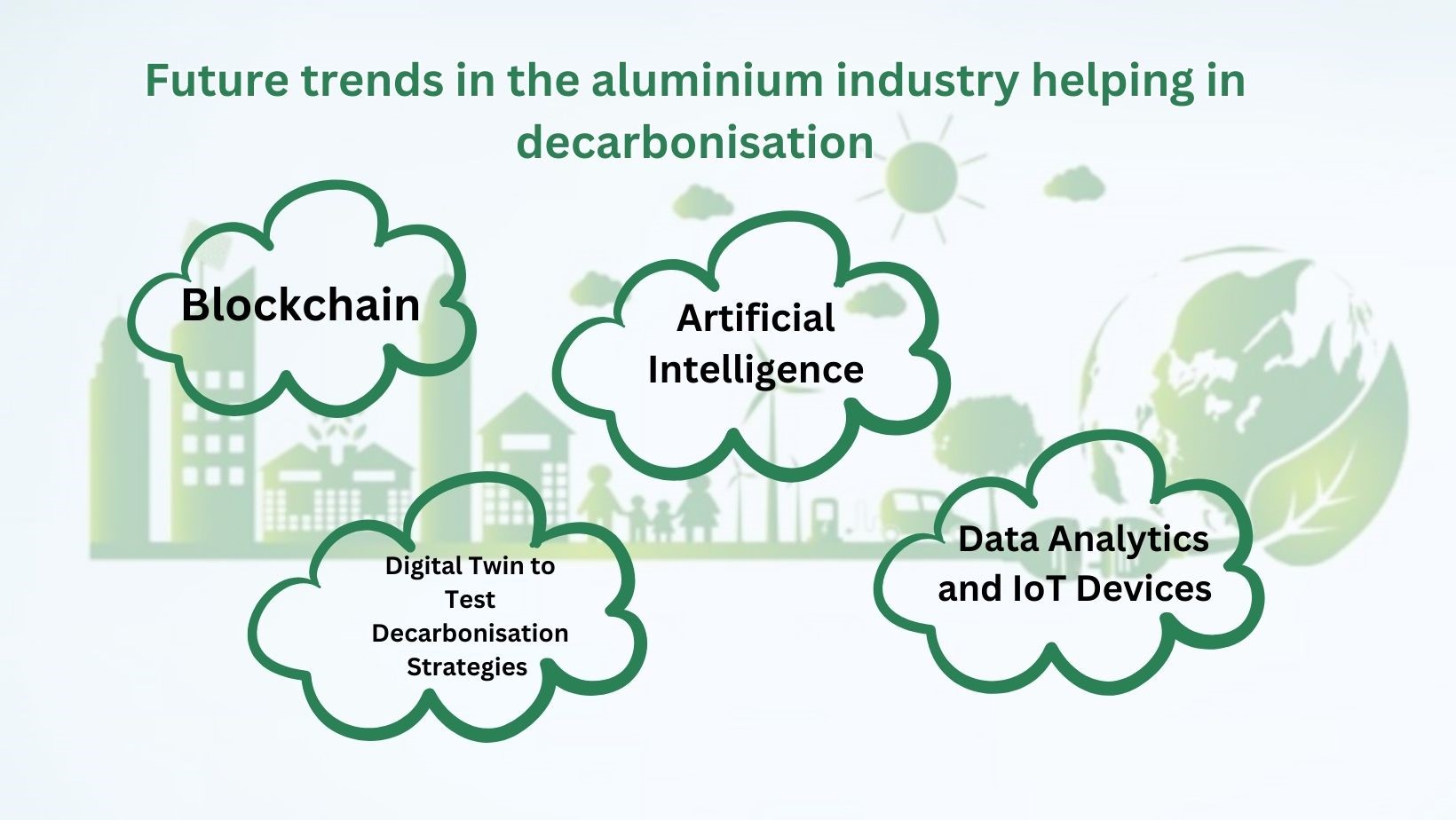您想继续阅读英文文章还
是切换到中文?
是切换到中文?

THINK ALUMINIUM THINK AL CIRCLE

Aluminium is the second most extensively used metal in contemporary society, after steel. Due to its varied features, it has experienced substantial growth in usage in recent decades in transportation, construction, packaging, and electrical engineering. For decades, the aluminium sector has had a bad reputation for being locked in the same technical paradigm. The emergence of digital transformation technology is slowly but surely chipping away at this unfavourable image. Aluminium smelters use cutting-edge digital technologies such as AI, Machine Learning, IoT, and Remote Sensing to automate and enhance their decarbonisation efforts.

Using artificial intelligence to sort mixed aluminium alloy scrap
Sorting aluminium alloy scrap requires an investment of both time and human resources. However, as we all know, most repetitive rules-based jobs can be automated. Sorting scraps is a rule-based operation that might be automated using Artificial Intelligence. Novelis has developed a comparable method with Sortera, an AI firm. Novelis can sort mixed aluminium alloys into separate alloys using Sortera. This technology has made sorting relatively rapid.
However, sorting through the scrap dump holding different types of aluminium alloys takes time for scrap merchants and smelters. Some aluminium-based products need very pure aluminium. Some alloy wastes, however, generate lesser-grade aluminium when recycled. As a result, only scraps that create practically pure aluminium scrap should be used. As a result, it is critical to separate aluminium alloy scrap depending on what substance (other than aluminium) the scrap is composed of.
Using blockchain to ensure traceability of responsibly-made aluminium
Yes, practically all aluminium businesses across the globe are doing something to make the aluminium manufacturing process more environmentally friendly. But how would end consumers of aluminium items, such as the person holding the aluminium beer can know that the aluminium he or she is holding is created in an ecologically beneficial manner? Here is where blockchain technology comes into play. Aluminium firms may utilise the blockchain to safely and permanently preserve information on how the raw material bauxite was procured and how much green energy was used to refine and smelt alumina to manufacture the beer can or the automobile body.
Rio Tinto has created the START programme, which uses blockchain technology to tell its partners how the aluminium goods they purchase are manufactured using green technologies. It gives information such as the product's carbon footprint, energy source, water consumed, recycled content, etc. Its clients, like vehicle manufacturers and beer firms, may pass on the information to their respective consumers, allowing end users to choose responsibly-made aluminium goods.
Using data analytics and IoT devices to predict and prevent anode effect
When the alumina concentration falls throughout the electrolysis process, the voltage exceeds the higher threshold limit, resulting in the anode effect. The anode effect produces CF4 and C2F6, two greenhouse gases particularly harmful to the climate. We commonly consider the rise in voltage to 8V as the beginning of the traditional anode effect. However, the Anode Effect begins with one of the numerous anodes. This single occurrence of anode effect may be discovered by detecting the micro-disruption in the electrolysis process. Smelters may use modern IoT devices to evaluate electrolyte level, electrolyte temperature, aluminium yield, alumina content in the solution, and other parameters before an anode effect occurs in a given smelter.
Collecting this data for days or months and then studying it would assist the smelter in benchmarking the circumstance that signals the beginning of anode impact. Smelters can now proactively monitor the level and temperature of electrolyte, as well as the quantity of alumina, using real-time analytics powered by IoT. This proactive data monitoring allows the smelter to detect when the pot approaches the anode effect threshold. It may then take proactive measures, such as raising the alumina concentration, to avoid anode impact. Data may be collected using IoT sensors, and communication between the sensors and edge devices occurs through the Zigbee network.
Using digital twin to test decarbonisation strategies
The utilisation of digital twins to virtualise production equipment and processes is one of the trademarks of Industry 4.0. A digital twin is a precise, changeable, and interactive simulation of a real-world process. We can employ digital twins to experiment with our procedures without affecting the factory's day-to-day operations. One of the reasons why aluminium smelters find it difficult to experiment with newer, carbon-neutral manufacturing techniques is that they need to maintain their existing infrastructure, in which they have spent millions of dollars. This is where digital twins come into play. Because the digital twin correctly depicts the complete smelting process, aluminium companies may test a decarbonisation solution on this virtual setup and analyse the outcomes. It's wonderful to see which optimising technique works best without touching the real equipment.
Responses








